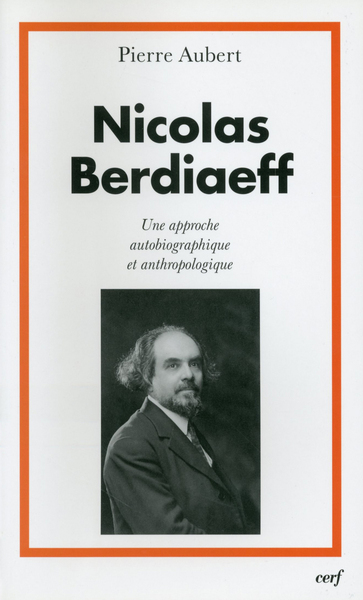- EAN13
- 9782204082860
- Éditeur
- Cerf
- Date de publication
- 5 janvier 2011
- Collection
- THEOLOGIE
- Nombre de pages
- 235
- Dimensions
- 23,5 x 14,5 x 1,9 cm
- Poids
- 360 g
- Langue
- fre
Nicolas Berdiaeff, Une Approche Autobiographique Et Anthropologique
Pierre Aubert
Cerf
Prix public : 23,00 €
L'anthropologie de Nicolas Berdiaeff est une formidable protestation face à la déshumanisation. Nicolas Berdiaeff (1874-1948), philosophe russe de confession orthodoxe, a vécu la chute du tsarisme et la révolution russe. Expulsé de son pays, en 1922, pour des raisons idéologiques, il passera le reste de sa vie en France, à Clamart, près de Paris. Sa vie et sa compréhension de l'être humain sont étroitement liées. C'est à juste raison que Pierre Aubert les suit sans les séparer : il commence par une présentation de la vie de Berdiaeff et décrit la genèse de sa vie spirituelle. Il dessine le cadre philosophique de sa pensée et l'influence de Dostoïevski sur sa vision de l'homme. Il expose enfin l'anthropologie issue de cette somme de vécu et de références intellectuelles et spirituelles. Pierre Aubert insiste sur l'intérêt actuel d'un penseur chrétien confronté à l'athéisme, car c'est dans ce contexte que Berdiaeff redéploie le dessein de Dieu concernant l'être humain. Il valorise le thème biblique de l'homme créé à l'image de Dieu, convaincu qu'il est que nous sommes des êtres non seulement physiques mais aussi spirituels. Réagissant contre l'éclatement consécutif à la modernité, il décrit l'être humain dans sa complexité et son désir d'unité, et souligne sa spécificité comme personne. Selon Berdiaeff, la dépersonnalisation de l'être humain est la conséquence de la non-reconnaissance de sa relation et de sa parenté avec Dieu. L'incarnation de Dieu en Jésus Christ l'amène enfin à méditer sur le mystère de la divino-humanité comme humanisation de l'être humain. Avec Pierre Aubert, on découvre ou redécouvre avec bonheur la belle figure de penseur et de témoin que fut Nicolas Berdiaeff. -- The anthropology of Nicolas Berdiaeff is a formidable protest against dehumanization. Nicolas Berdiaeff (1874-1948), a Russian philosopher of the Orthodox faith, lived through the fall of the Tsars and the Russian Revolution. He was exiled from his own country in1922 for ideological reasons and spent the rest of his life in France, in Clamart, near Paris. His life and his understanding of the human being are closely linked. It is with good reason that Pierre Aubert retraces both, without making any distinction. Beginning with an account of Berdiaeff's life, he describes the genesis of his spiritual life, outlines the philosophical framework of his thinking and the influence of Dostoevsky on his vision of man. He concludes by explaining the anthropology that resulted from this accumulation of real-life experiences and intellectual and spiritual values. Pierre Aubert stresses the topical interest of a Christian thinker confronted with atheism, for it is in this context that Berdiaeff unfolds God's plan concerning humanity. He develops the Biblical theme of man created in the image of God, convinced that we are not just physical beings, but also spiritual. Reacting against the fragmentation that modernity has produced, he describes man in his complexity, his desire for unity, underlining his specificity as an individual. According to Berdiaeff, the depersonalization of man is the result of the failure to recognize his relationship and bond with God. The incarnation of God in Jesus Christ leads him finally to meditate on the mystery of human divinity as the means of humanizing man. In the company of Pierre Aubert, readers will take pleasure in discovering, or rediscovering Nicolas Berdiaeff, a fine thinker and witness.


















